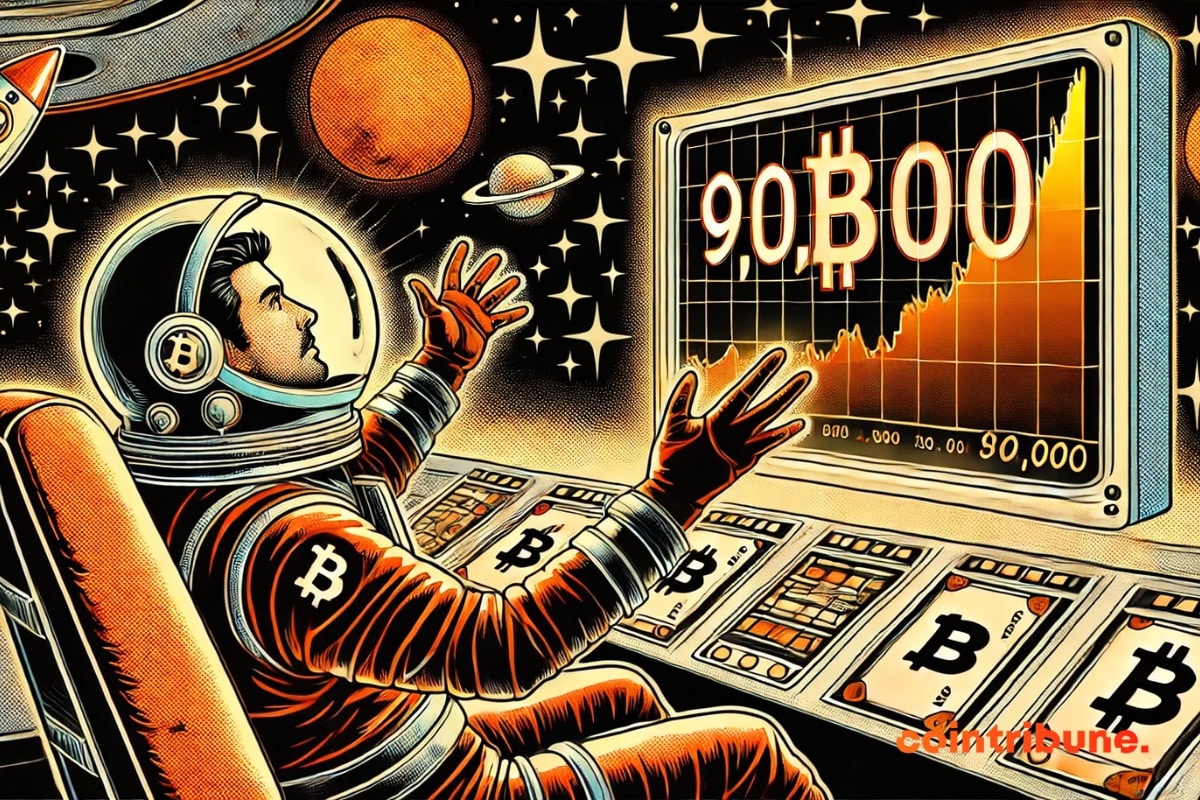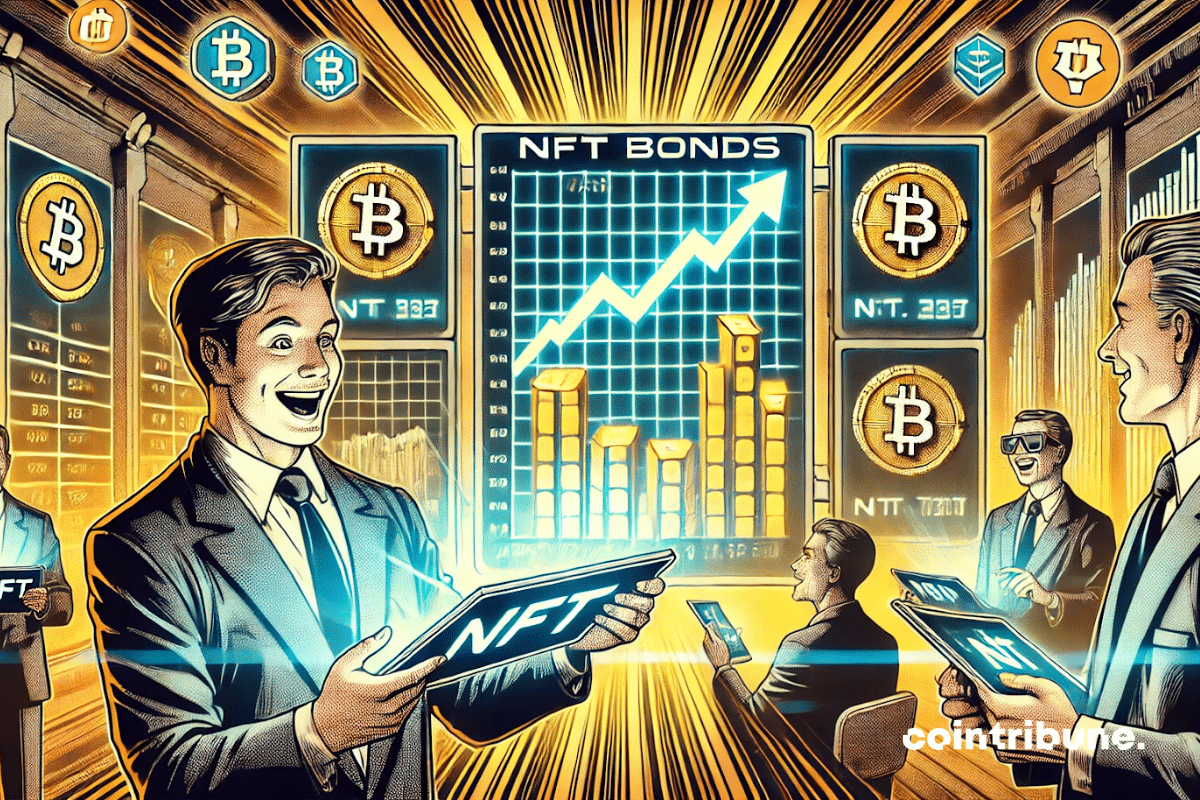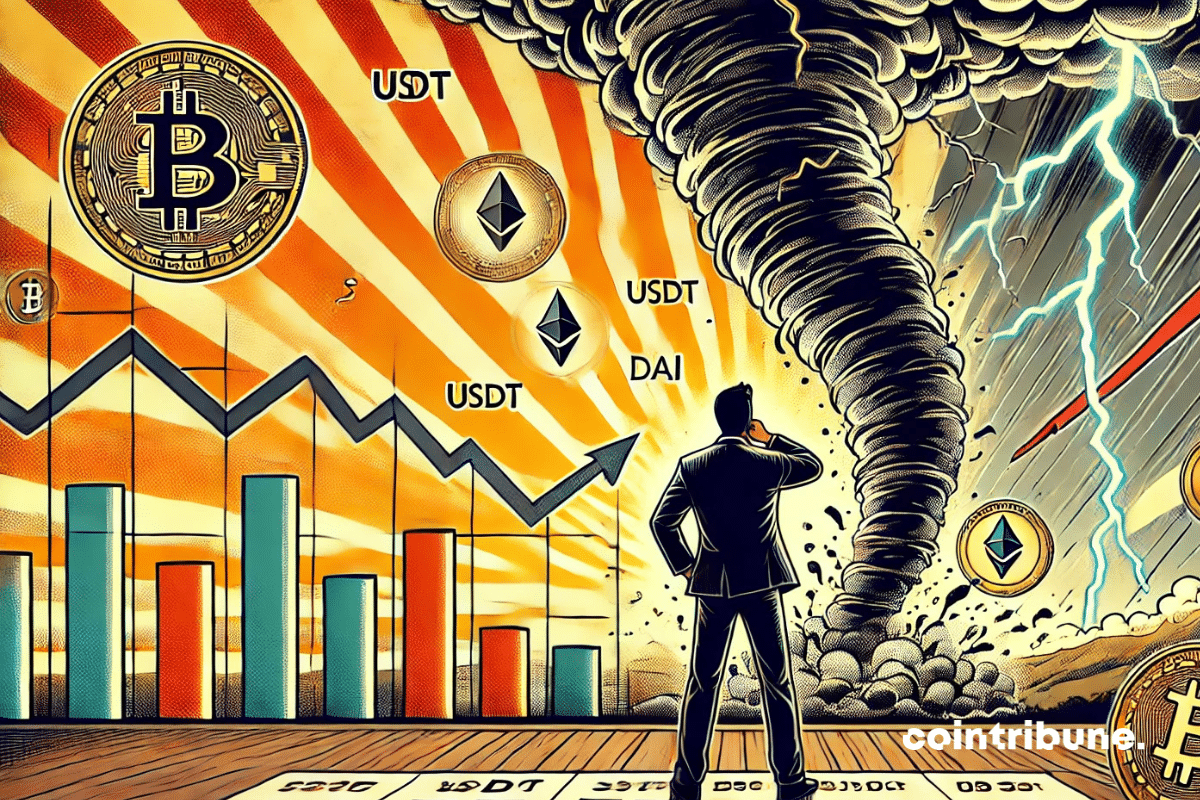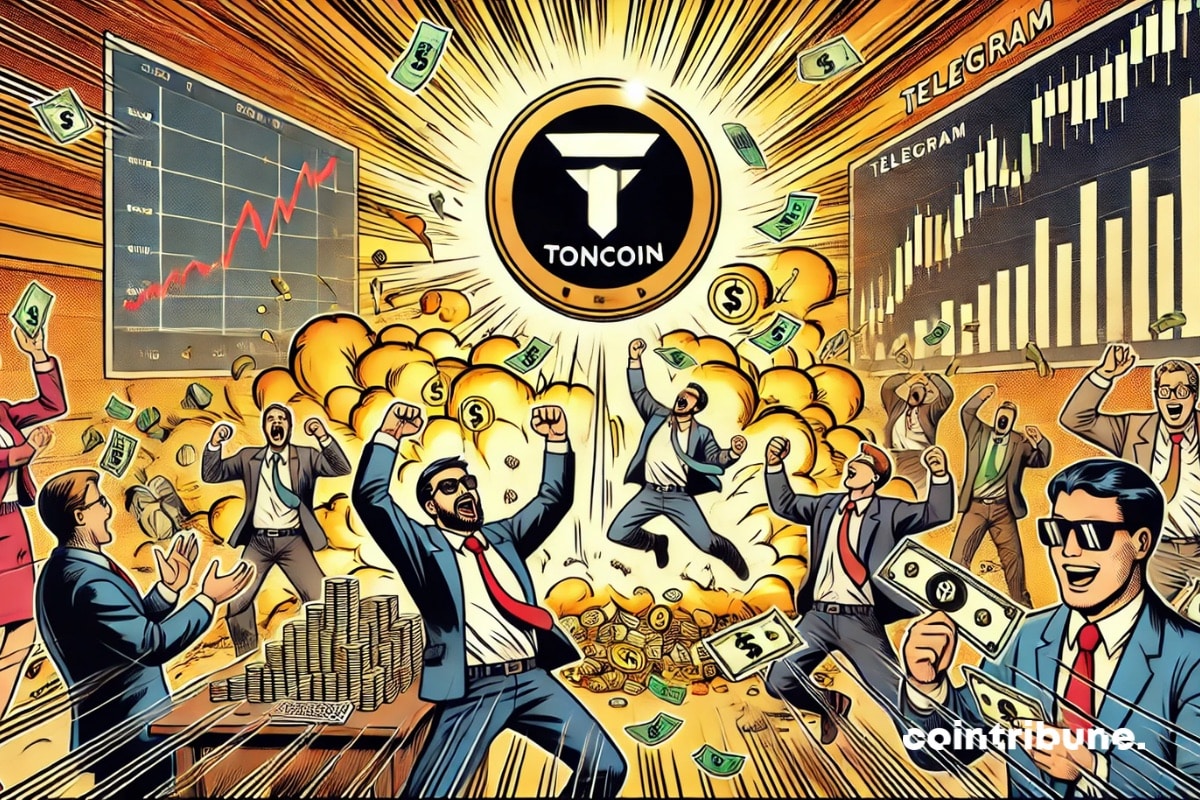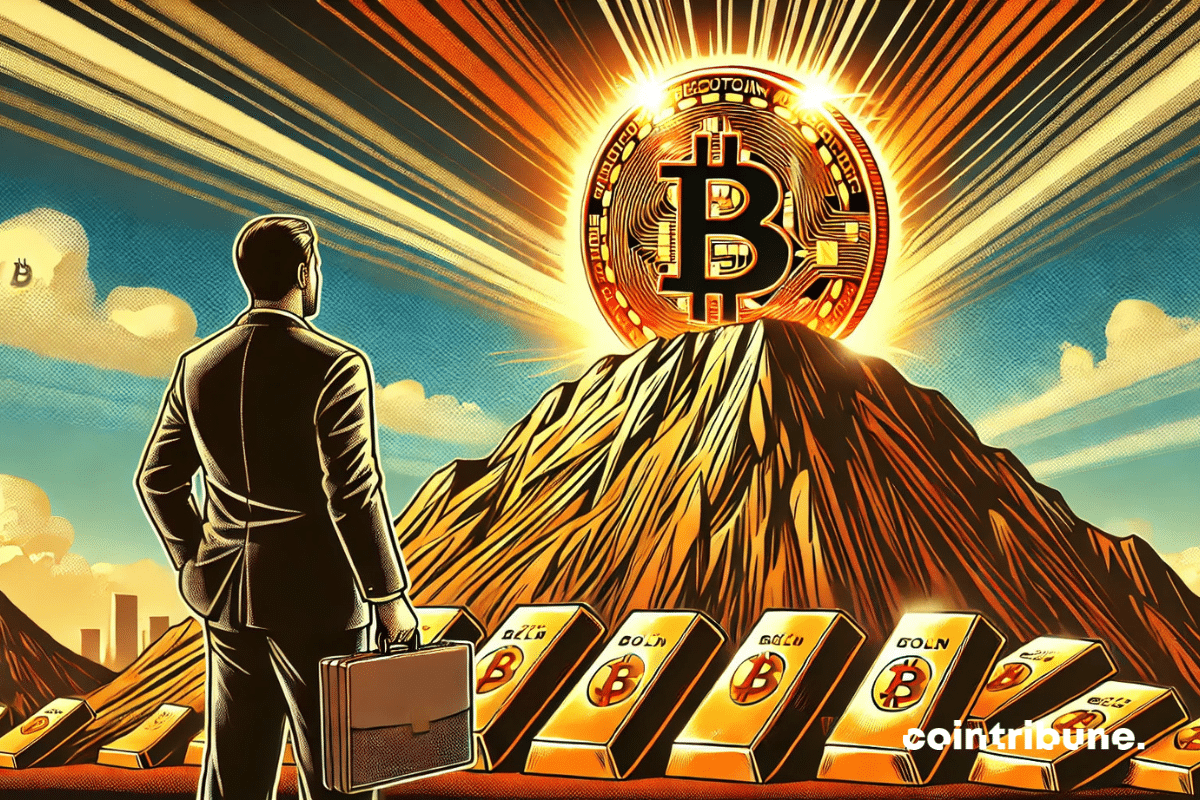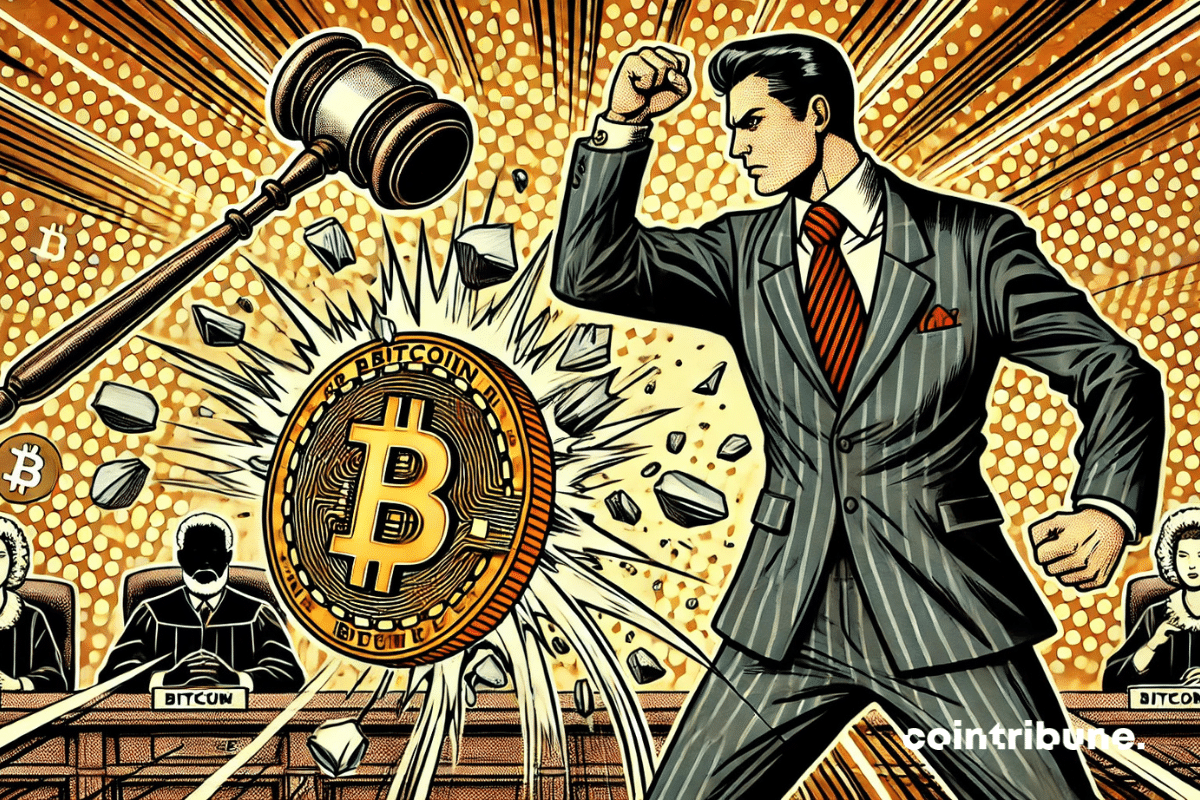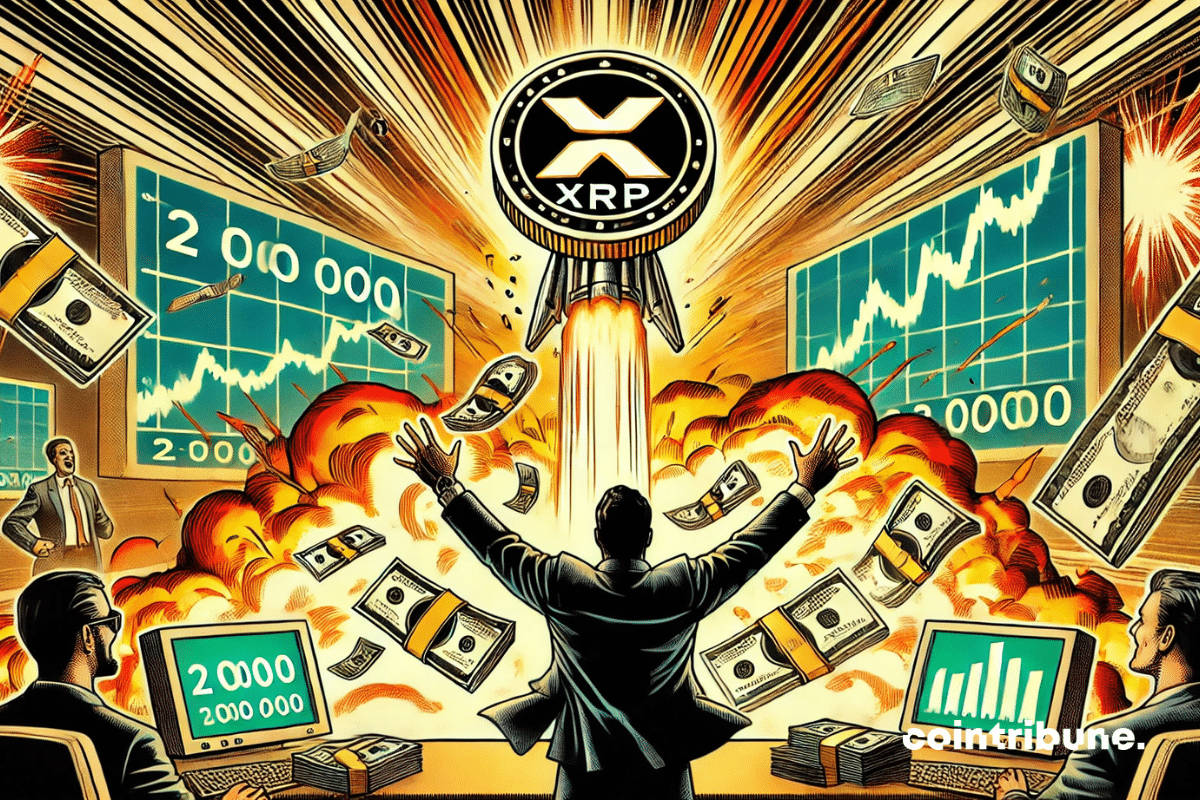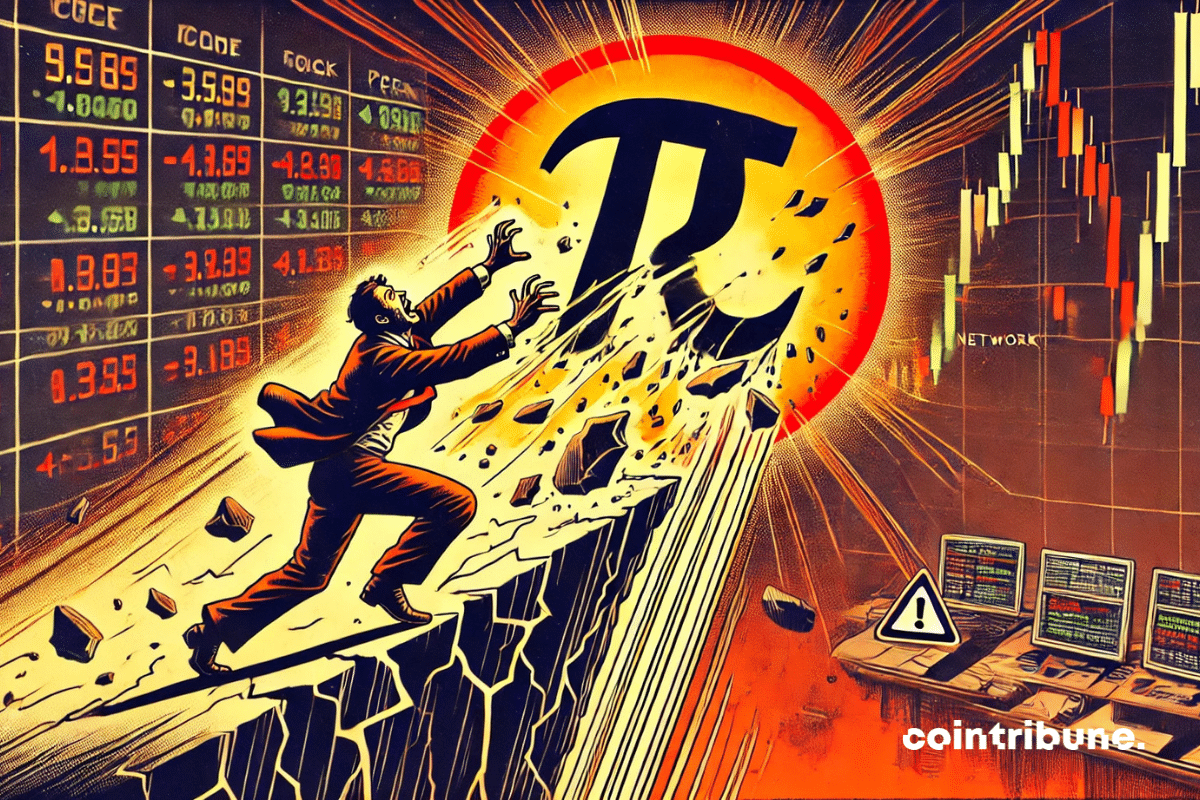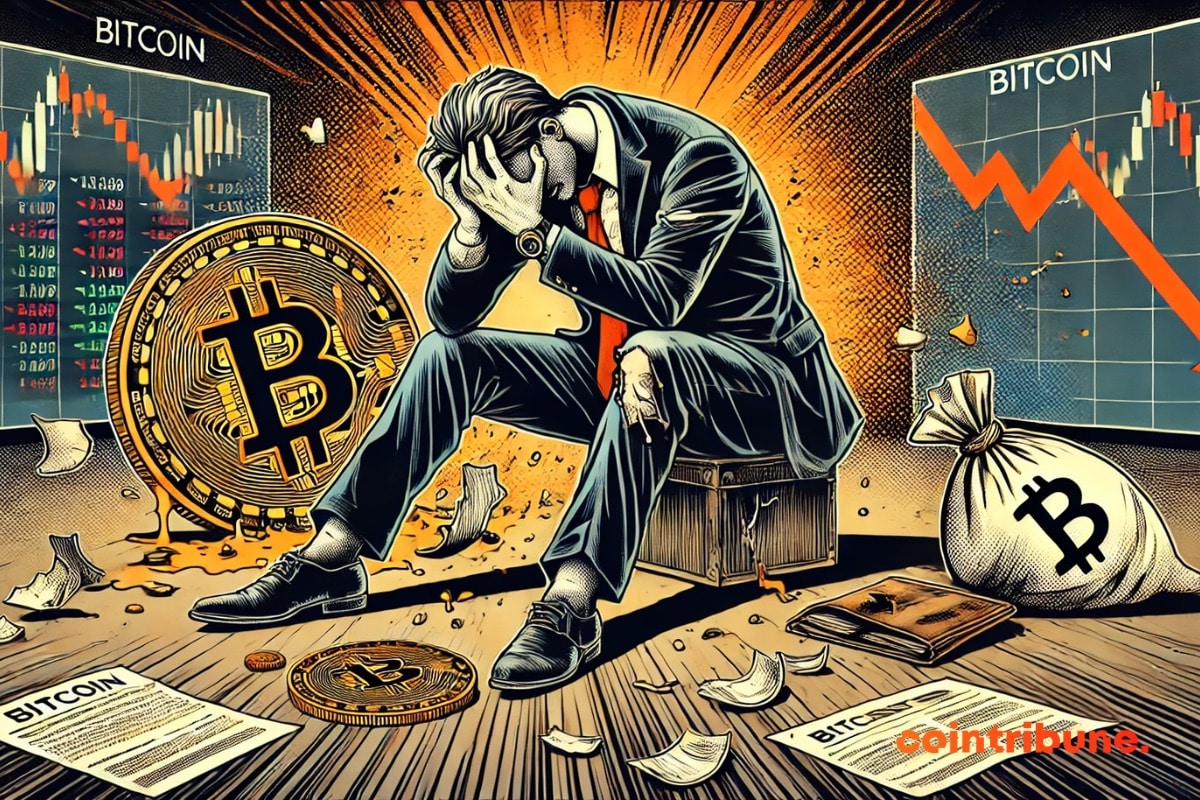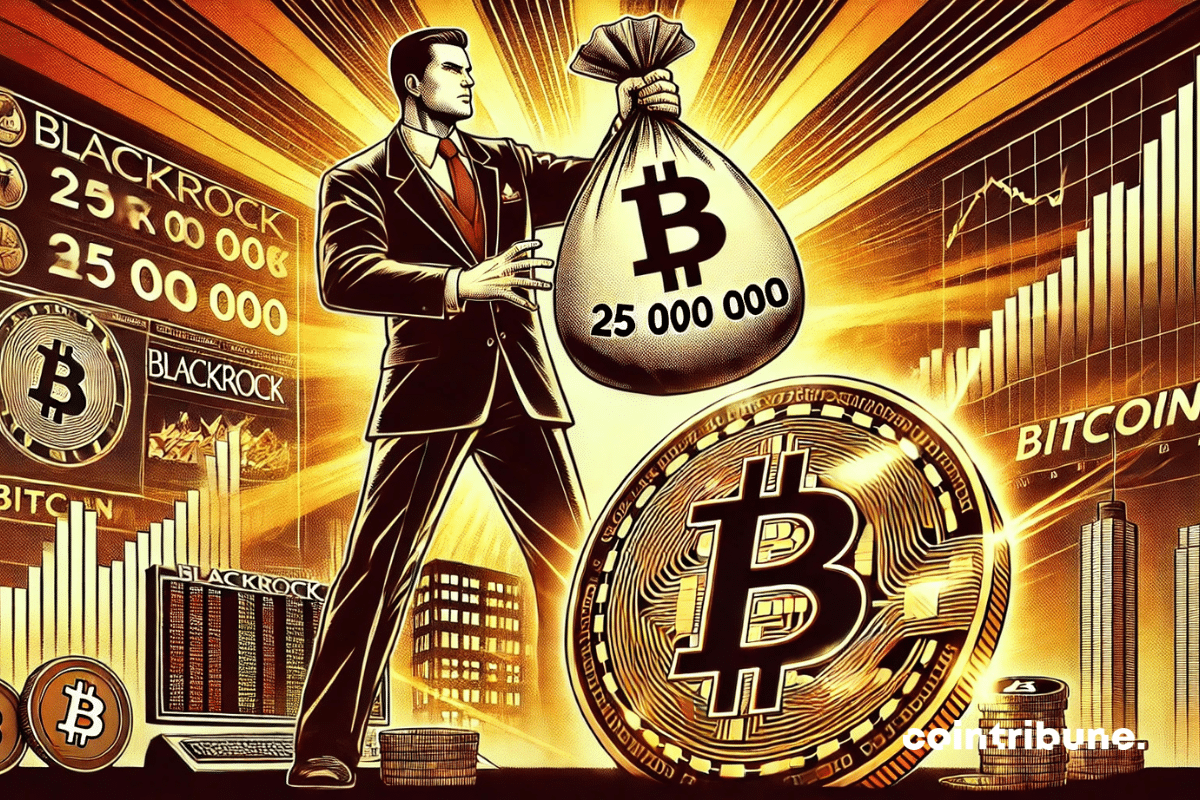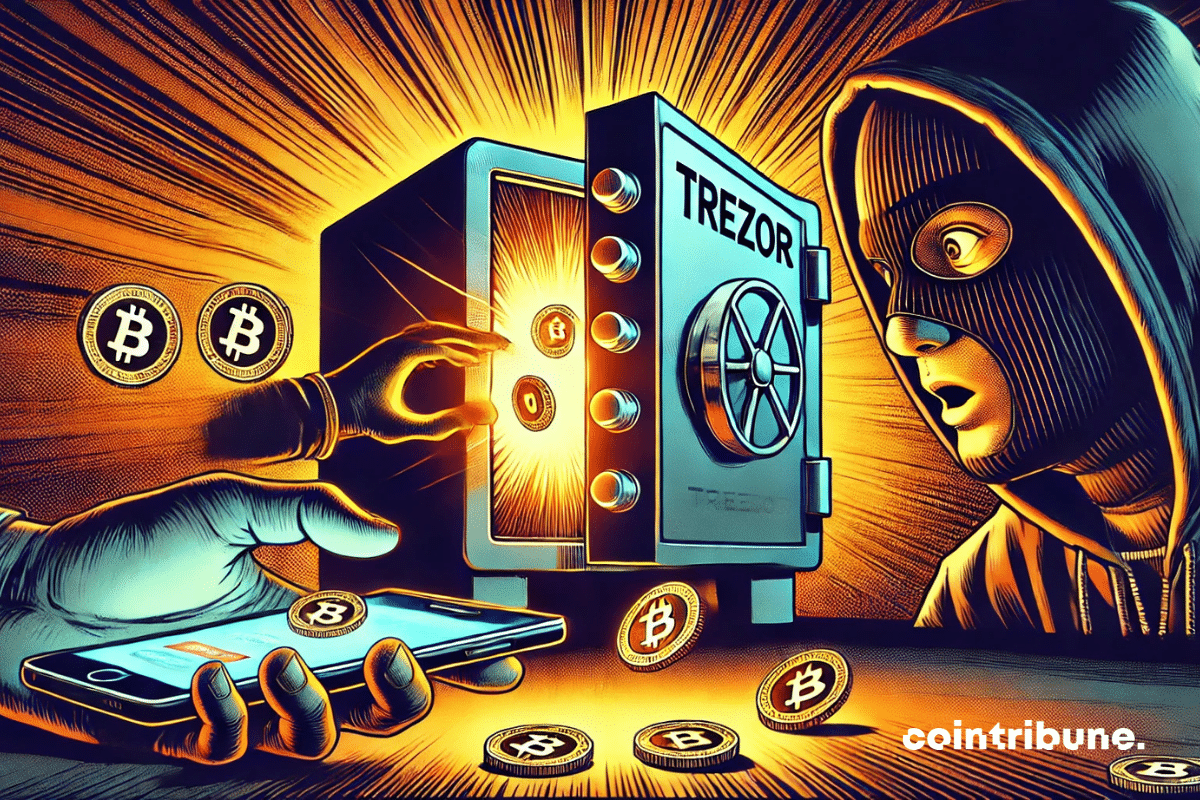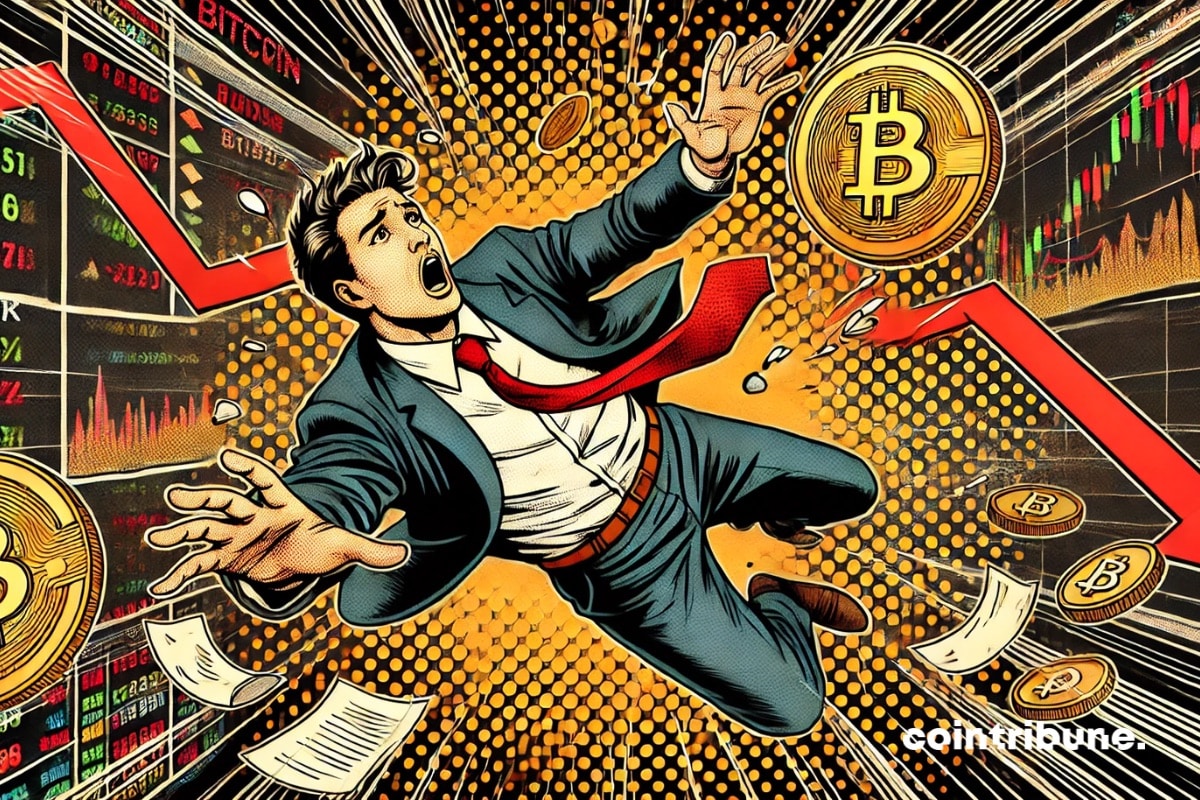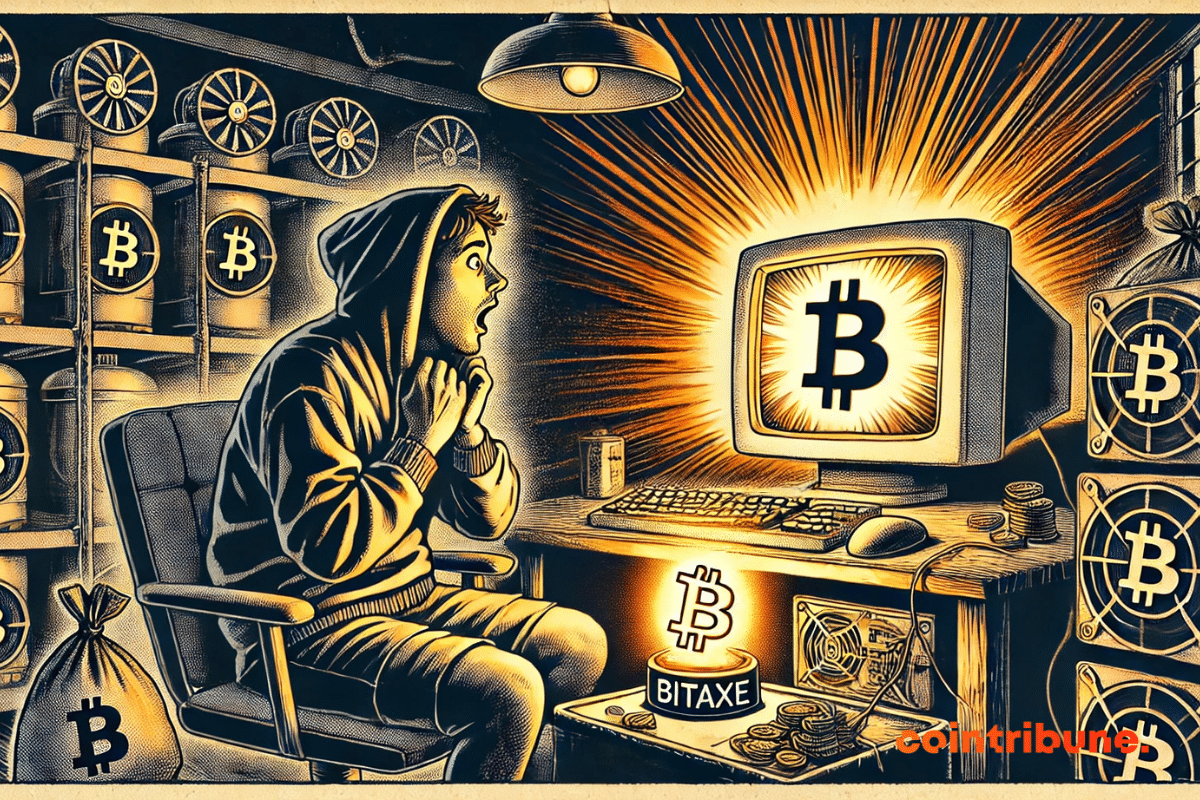Bitcoin is currently showing signs of recovery after a period of high volatility. Despite a 30% drop from its historic peak in January, the queen of crypto seems to be finding some stability. Several key factors are emerging, suggesting a return of BTC to $90,000 in the coming days.
Getting informed
The evolution of the financial market is following an increasingly digital trajectory, and NFT Bonds (tokenized bonds in the form of NFTs) are emerging as a major innovation. In a world where blockchain is redefining access to financial instruments, players like Credefi are taking a pioneering role by integrating these bonds onto the blockchain, making these products accessible and liquid.
Trade wars are reshaping the global economy. They impact entire industries and reconfigure strategic balances. Among the companies directly affected, Tesla finds itself on the front line facing the new tariff measures imposed by Donald Trump. Tesla, for which China is the second-largest market after the United States, could pay a heavy price for this economic escalation.
For decades, the US dollar has dominated international trade and has established itself as an essential global reserve. However, this absolute reign is now challenged by the BRICS bloc. As a result, geopolitical tensions and the rise of cryptocurrencies are pushing several countries to seek alternatives to the greenback. Bitcoin and stablecoins are emerging as instruments capable of circumventing the supremacy of the dollar, but paradoxically, they could also reinforce its influence.
The crypto market is buzzing, traders are accumulating, stablecoins are soaring. A prelude to a bullish party or the swan song before an unexpected crash? The riddle persists.
Since the announcement of the release of Pavel Durov, founder of Telegram, Toncoin (TON) has experienced a spectacular rise of over 50%. The crypto market, responsive to good judicial news, reacted immediately to the delight ofTON enthusiasts. This remarkable rebound highlights the influence of iconic figures and their impact on the cryptocurrency market.
As gold shatters its historical records by nearing $3,000 an ounce, Bitcoin wavers. The Bitcoin/gold ratio, a symbolic pillar for twelve years, has just broken its upward trend. An alarming signal for crypto enthusiasts? Amid geopolitical tensions, aggressive trade policies, and contrasting ETF flows, the financial landscape is fracturing. Is the reign of "digital gold" threatened by the renewed shine of the precious metal?
Crypto ETFs are crashing down like an uncontrollable wave. Avalanche joins the dance, but history has taught us that markets sometimes have a short memory... and a brutal correction.
Bitcoin continues to challenge traditional financial markets and generates increasing interest among investors. For several years, it has been compared to gold, often presented as its digital equivalent. But this time, Tom Lee, influential analyst and co-founder of Fundstrat, goes further and claims that Bitcoin will become the best-performing asset.
A wind of dissent is blowing over Washington. A legislator is directly confronting Donald Trump's initiative to create a strategic reserve of Bitcoin and other cryptocurrencies. For him, this project is nothing visionary: it is more of a dubious maneuver, built on unstable ground where private interests and public funds intertwine.
After a period of slowdown, XRP is making headlines again with a surge in its on-chain activity. The network has surpassed 2 million transactions, a threshold that, in the past, has often been a precursor to renewed interest from investors.
Durov flies to Dubai, leaving behind French justice. A stroke of genius or the last act before the fall? The crypto world holds its breath.
In a constantly shifting crypto market, Pi Network is at a decisive turning point. While investors were waiting for signs of stabilization, the asset is facing a concerning downward trend, fueled by increased selling pressure. The expiration of the migration period to the Mainnet, combined with technical indicators in the red zone, is fostering growing uncertainty.
A wave of panic is sweeping through the bitcoin market. In just six weeks, short-term investors have lost over 100 million dollars, caught in a brutal correction. Should this be seen as a worrying signal or a disguised opportunity for savvy investors?
The traditional financial industry and the crypto sector continue to intersect, and every move of Wall Street giants is scrutinized closely. Indeed, the announcement of BlackRock's return to the bitcoin (BTC) market with a $25 million investment has not gone unnoticed.
Trezor believed its vaults were impenetrable, but Ledger blew on the lock. A sealed flaw, a shaken trust, and the crypto security war is back in full swing.
Moscow is stepping up now that Washington has embraced bitcoin. Soon a Russian strategic reserve?
Bitcoin is going through a period of indecision. After reaching a peak of $109,000 in January 2025, its price dropped to $84,290, marking a correction of 23%. Some analysts believe that the leading cryptocurrency could enter a new 8-month consolidation phase, a pattern similar to what was observed in 2024. This hypothesis is based on several technical indicators and the behavior of institutional investors.
At the heart of a scandal blending crypto and political intrigues, an Argentine lawyer shakes up the established order. The LIBRA case, which oscillates between financial manipulation and a game of deception, promises to be one of the most striking episodes in the crypto universe. In this turbulent context, every word counts and every gesture is scrutinized.
A tiny device challenging the monsters of Bitcoin mining, a chance worthy of a miracle, and there is a solitary miner pocketing $260,000 under the astonished gaze of the industry.
Elon Musk wanted to conquer the stars, but his empire is wobbling on Earth. Tesla is falling, Trump is getting involved, and Wall Street is watching, skeptical, this great balancing act.
In the shadow of the economic restrictions imposed by the West, Moscow is charting a new path for its energy trade. In the face of exclusion from the international financial system, Russia has found an alternative solution: the use of Bitcoin (BTC) and Tether (USDt) to bypass sanctions and ensure the continuity of its oil exports.
Ethereum is going through a critical period, and a 20% drop could trigger $336 million in liquidations on the DeFi market. With key levels to watch and increased volatility, investors must prepare. Risk analysis, adaptation strategies, and solutions to protect their crypto portfolio against this threat.
The Dencun upgrade of Ethereum has led to a dramatic decrease in transaction fees on the network. Etherscan data reveals that a swap now costs an average of $0.39, down from $86 last year.
The craze for memecoins on the Pump.fun platform is drastically fading. The survival rate of tokens has fallen below 1% for four consecutive weeks, reflecting a growing disinterest from investors in this type of speculative asset.
CZ surprises everyone by revealing an exclusive excerpt from his book on crypto-assets. We provide you with the details in this article.
Bitcoin exchange-traded funds have maintained over 95% of their invested capital, despite a slowdown in inflows and a recent significant drop in price. This resilience, comparable to that of traditional stock ETFs, reflects a change in the behavior of crypto investors.
Ethereum Pectra update postponed! A new testnet is scheduled for March, but the final date remains uncertain. Details in this article!
Ethereum in free fall against Bitcoin: mere turbulence or alarm signal? As the ETH/BTC ratio hits its lowest level in 5 years, some traders are fleeing to more profitable altcoins. Should we follow the trend or wait for a rebound? Discover the analyses and strategies to not miss the next crypto wave!
According to the latest financial statements made public, at least six members of Donald Trump's presidential cabinet hold investments in bitcoin, with a combined total value reaching several million dollars. This revelation aligns perfectly with the president's promise to make the United States the "global superpower of Bitcoin."
